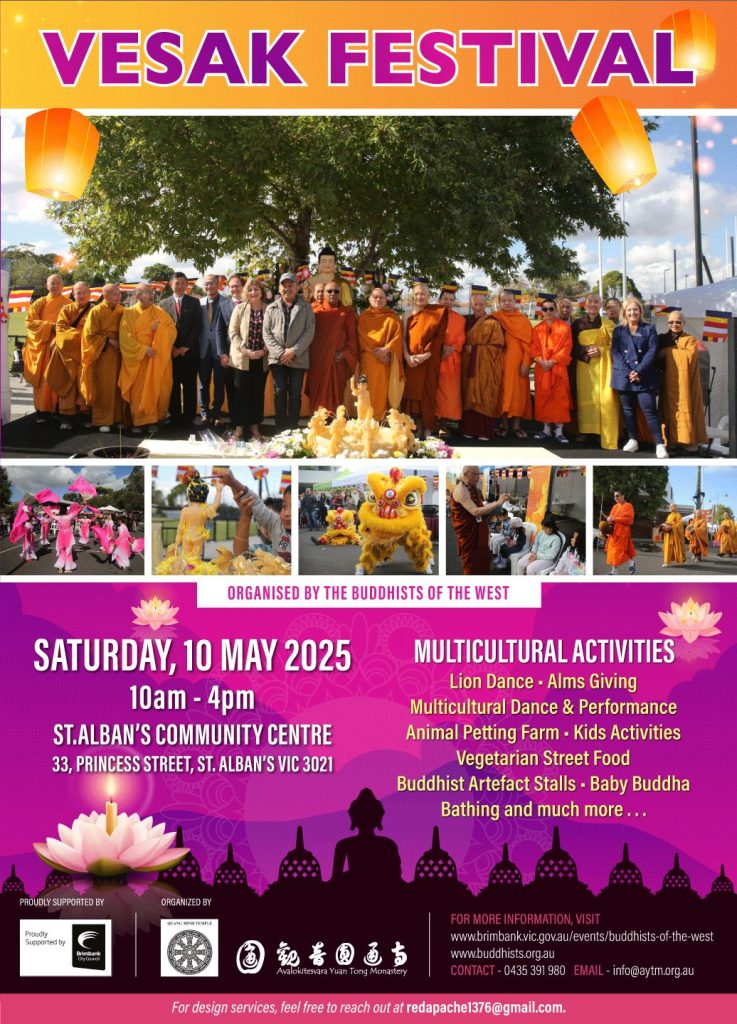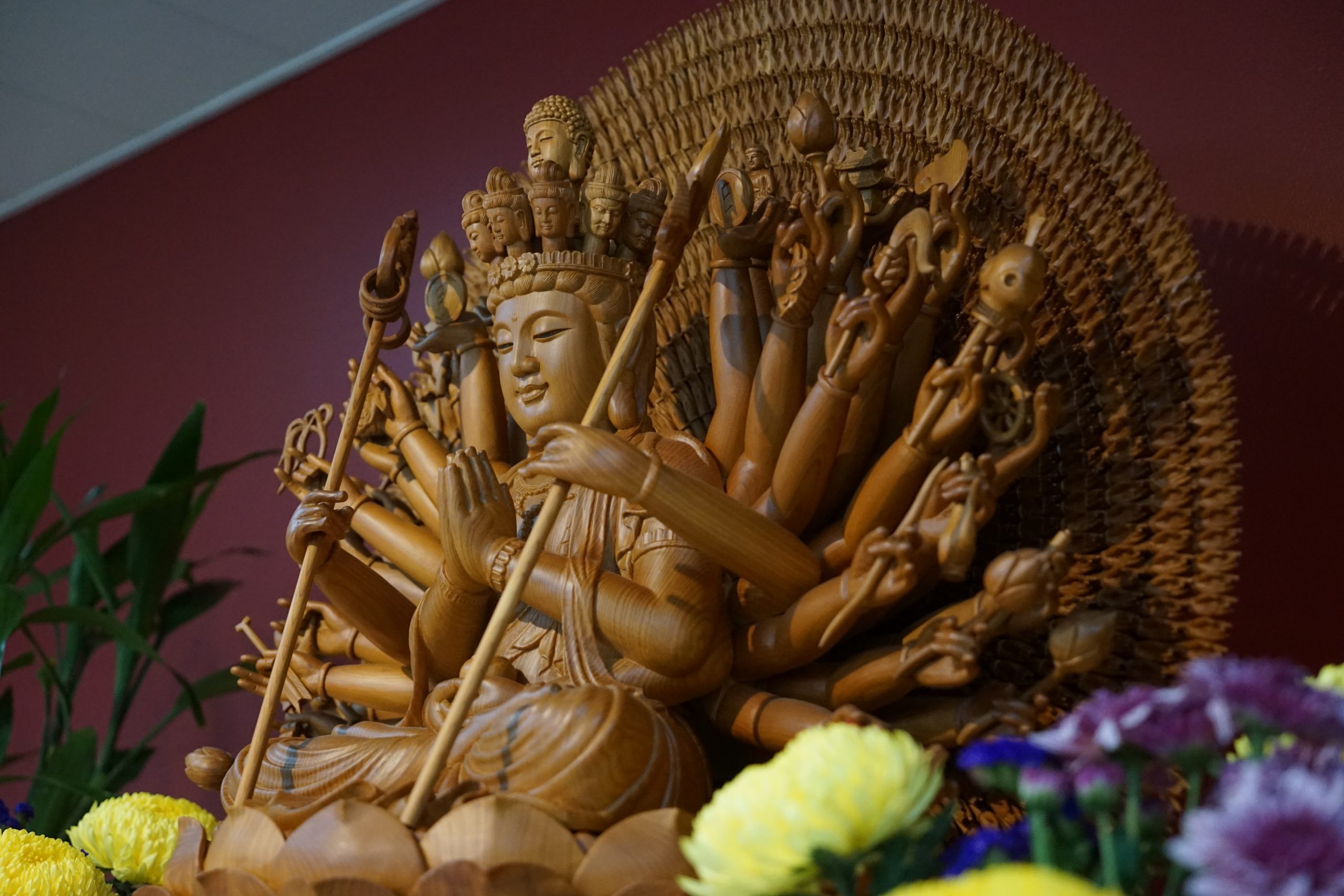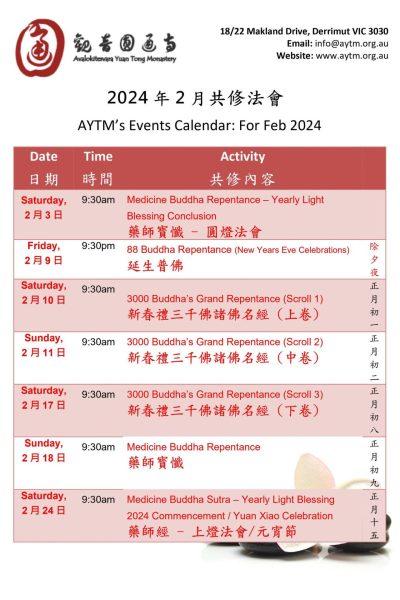Consciousness > Thinking > Thoughts > Actions Our true self is predominantly awareness and consciousness. When the process of thinking is unchecked and undisciplined, it leads to negative thoughts that stimulate negative emotions. As a result, one experiences mental distress, giving rise to a toxic ego that eventually hijacks the driver’s seat of consciousness. Bit
Heart Sutra
"Form is emptiness, emptiness is form."
Upcoming Event

Weekly Activities
Weekly Sutra Recitation or Repentence
Shurangama Mantra & 108 Guan Yin recitation
Sutra Reading Group & Dharma Group
Qi-Gong and Breathing Activities
Cost: Free or By Donation.
Meditation
& Mindfulness
Cost: Free or By Donation.
Mindful Vegetarian Gathering
Cost: Free, By Donation, or share a meal


Guan Yin Temple
Support for Multicultural Communities
Latest News & Blogs
Buddhism A to Z (205) – Hells With each cry, a small dark room awaits in the hells. (FAS-VP 24) The hells, filled with anxiety and suffering,Have no doors, yet one bores right in.Out of delusion, deeds are done.The retribution is borne in due accord. (TD 52) What are the so-called “hells”? Who created them?
What if hell is a place of spiritual cleansing, a process of purification, much like the way a dirty needle was cleansed by fire in the past? Remember the days from the 1960s to the 1980s, when children lined up for vaccinations in schools? Due to limited resources, nurses often reused needles, but before each
Generosity is not confined to those with abundant resources or time; it’s a practice that anyone can cultivate, regardless of circumstances or beliefs. Here’s how you can practice giving even when faced with challenges: 1. Give Your Time and Attention Busy Schedule: If your schedule is packed, even a few moments of undivided attention can
The Buddha said: Wishing to perfect the six paramitas, I diligently practiced giving without begrudging any elephants, horses, the seven treasures, the country, cities, wives, children, slaves, servants, and even my head, eyes, marrow, brain, body, flesh, hands, and feet—not being reluctant about even life itself. (DFS X 4) Giving transforms those who are stingy
The Shurangama Mantra, known in Sanskrit as the Śūraṅgama Mahāmantra and traditionally chanted in Buddhism, is considered one of the longest and most important mantras in Buddhism. According to Buddhist teachings, the benefits of reciting the Shurangama Mantra are numerous and encompass spiritual, mental, and physical realms. Here are some of the benefits often attributed






